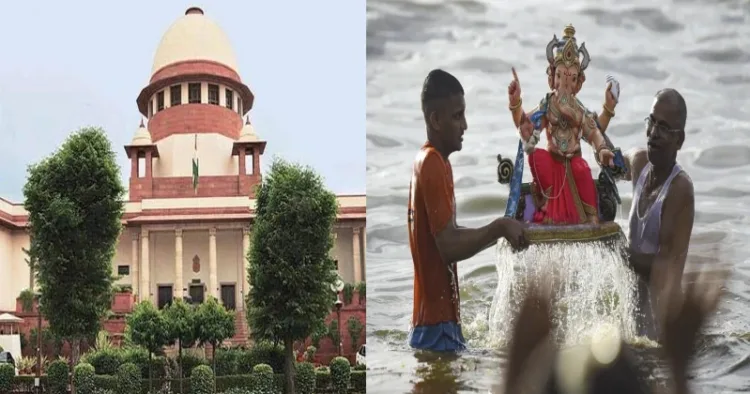The Supreme Court on September 12 stayed the order of the National Green Tribunal (NGT) limiting the number of members of each Dhol-Tasha-Zanj troupe to 30 persons during the murti immersion rituals of Bhagwan Ganesh in Pune.
A bench of Chief Justice of India DY Chandrachud and Justices JB Pardiwala and Manoj Misra issued notices to the Maharashtra government, Pune authorities, Maharashtra Pollution Control Board (MPCB) and others.
“Let them do their Dhol-Tasha, this is the heart of Pune,” said the Supreme Court.
The NGT had directed to restrict the total number of Dhol-Tasha-Zanj troupes to only 30 per group, along with real time monitoring of noise pollution around each Ganesh pandal and initiating criminal proceedings against the violators.
The counsel appearing for the petitioners said that ‘Dhol-Tasha’ has a very deep cultural significance in the Ganesh festival for Pune.
“Issue notice… Mr. Amit Pai submitted that the direction (no. 4) will affect the Dhol-Tasha groups, pending next day of listing there shall be stay of operation of direction no. 4. Let them do their Dhol-Tasha, it’s the heart of Pune,” said the bench.
On August 30, NGT Western Ghat ordered real-time monitoring of noise around Ganesh pandals and during immersion processions in Pune as part of various directives aimed at curbing noise pollution during the 10-day Ganeshotsav festival, which began on September 7.
The NGT had put restrictions on loudspeakers beyond a total capacity of 100 watts (W) in a pandal, prohibition on the use of tolls (metallic high noise-making unit) and DJ sets during Visarjan (immersion) processions. Additionally, there were limitations on the number of members of each Dhol-Tasha-Zanj troupe to 30 among other directions.
(with inputs from ANI)




















Comments